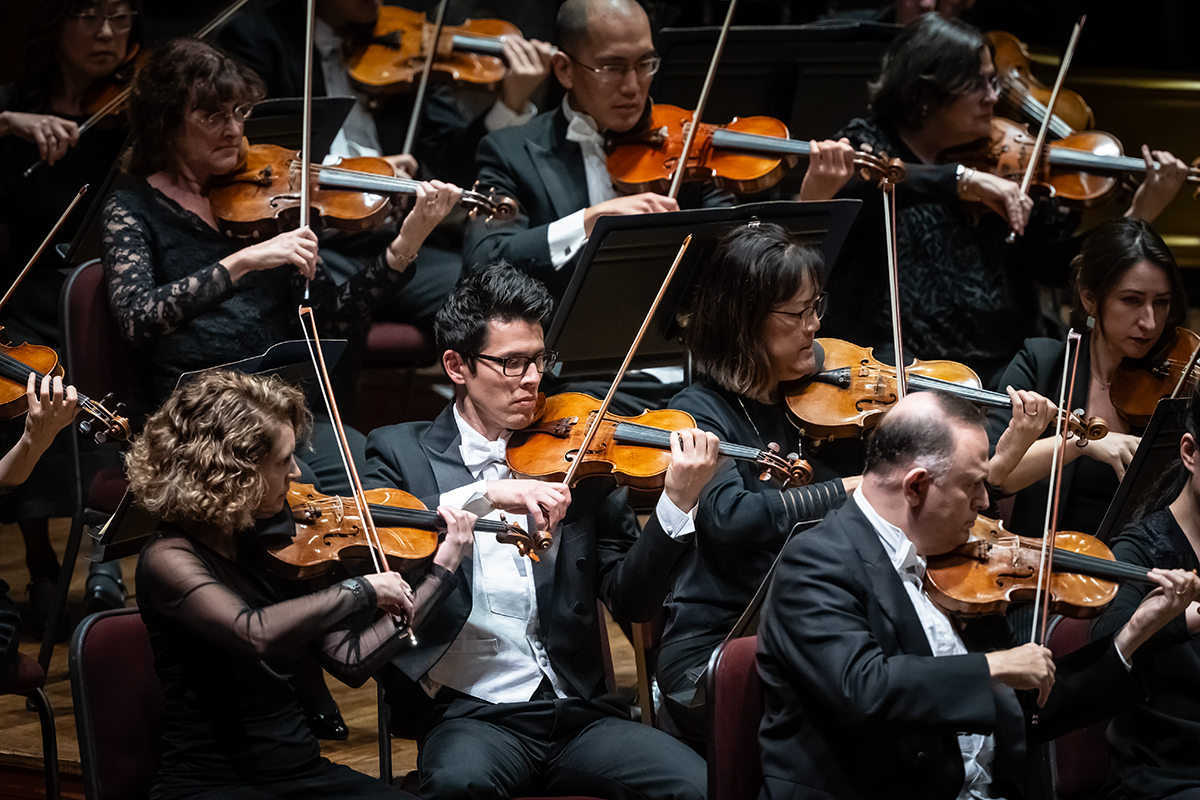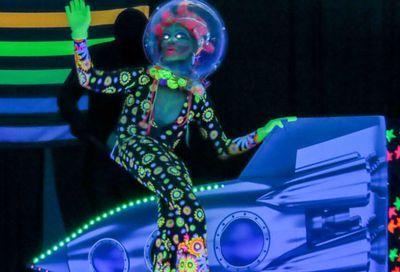Sound, but No Vision
Despite some satisfactory performances, Un Ballo's stark design elements hinder rather than enhance
An austere production, perhaps appropriate to tough economic times both at the Washington National Opera and at large, Verdi’s Un Ballo in Maschera is more about competence than magic. With sets that are ostentatiously spare, costumes consigned to a spectrum of grays, and the only concession to color a few scarlet cummerbunds and the glad rags of the soprano, this is anything but a feast for the eyes. Unfortunately, it is also not a feast for the heart, for although such bland surroundings can often serve to put emotion into stark relief, here they simply complement a dramatic reticence. Epiphanies abound in this romantically tragic opera, but here they play more like parts moving into tableaux than the humanely chaotic interactions they represent. A few of the cast seek to transcend this rather calculated mood, but more remain submerged in director James Robinson’s chess-like approach.
Of course, one might argue that such an interpretation nods to the opera’s history since Verdi based it, at least in part, on the real-life assassination of the King of Sweden and then the censors of the day wanted it re-set in a Massachusetts colony – two locales hardly known for their flamboyance. But such ephemerals can only be lost on anyone preferring to celebrate their high-passion period pieces with a bit of pomp, circumstance and spectacle.
In libretto and musical score, if not onstage, the fodder is rich: Gustavus III, King of Sweden, has fallen madly but secretly in love with Amelia, the wife of his best friend, Count Anckarstrom. Unaware of the betrayal, Anckarstrom makes it his business to warn Gustavus that conspirators abound, but Gustavus, a rather carefree sort of royal, remains unfazed. In fact, Gustavus is so distractible that instead of signing the banishment order for a popular fortune-teller, Mam’zelle Arvidson, he organizes an outing to meet her. In disguise, of course. After impressing the crowd with her blazing eyes amid plenty of dry ice, Arvidson eventually warns Gustavus again that he is in danger, this time specifying that his enemy is a friend, though the ever-ebullient king still refuses to believe it. Yet destiny will not be denied and Gustavus inexorably triggers the inevitable when he later overhears Arvidson sending Amelia in search of an herb to cure love and he follows her.
Without doubt, tenor Salvatore Licitra marks the emotional core of this production, giving his Gustavus much charisma and energy (note that some of the lead roles are shared), but with such lukewarm environs, he has little to play against. A gloriously large, virile — if sometimes slightly gravelly — tenor, Licitra certainly rattles the red-enrobed rafters and hit some ringing notes. Yet there is a complacency about him too; notes delivered without nuance, a certain inattention to detail behind the volume. As an actor, Licitra often seems fully immersed in his Gustavus, and yet at other times – such as when he smiles during a pause for applause – one sees just how close to the surface he moves.



To 9/25
Washington National Opera
Kennedy Center Opera House
$55-$600
202-295-2400
dc-opera.org
As the guilt-and-love-torn Amelia, soprano Tamara Wilson offers a satisfying power to her rich sweetness, though not with quite as much dexterity as one would hope. Her low-key Amelia matches the somber tones of the production but not much in the way of Gustavus’s passion. Indeed, Wilson’s greatest moments of expression are in her plea to Anckarstrom to delay his vengeance long enough for a farewell to her son.
Though not the most richly menacing of mezzos, Elena Manistina gives her Mam’zelle Arvidson a certain madwoman zeal, and baritone Luca Salsi’s Anckarstrom is believable if not always robust in the lower register. In the trouser role of Gustavus’s page, Oscar, soprano Micaela Oeste proves herself capable of a light, crystalline sweetness when fully powered, but her evocation of a male youth is too contrived to offer much charm. As co-conspirator Count Horn, Julien Robbins brings a quietly compelling sense of danger to the proceedings.
A wonderful constant in every season, the WNO chorus delivers their few but poignant interludes with far more color than their costumes.
Carrying the evening and perhaps offering the biggest reason to attend is, of course, the chance to hear Verdi as lush and complex as one could hope.
Support Metro Weekly’s Journalism
These are challenging times for news organizations. And yet it’s crucial we stay active and provide vital resources and information to both our local readers and the world. So won’t you please take a moment and consider supporting Metro Weekly with a membership? For as little as $5 a month, you can help ensure Metro Weekly magazine and MetroWeekly.com remain free, viable resources as we provide the best, most diverse, culturally-resonant LGBTQ coverage in both the D.C. region and around the world. Memberships come with exclusive perks and discounts, your own personal digital delivery of each week’s magazine (and an archive), access to our Member's Lounge when it launches this fall, and exclusive members-only items like Metro Weekly Membership Mugs and Tote Bags! Check out all our membership levels here and please join us today!



















